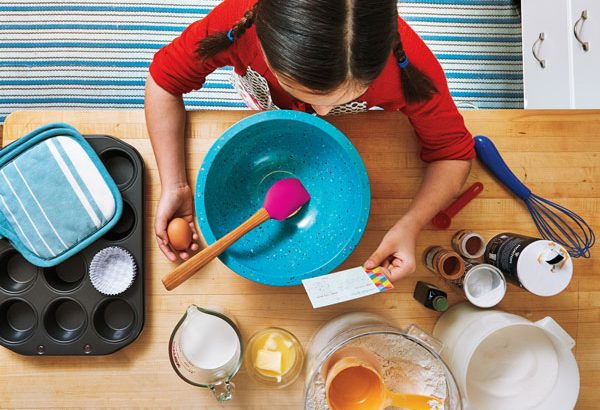A Parent Asks: How Can I Teach Science for My Child with Dyslexia?
Homeschool science provides a great opportunity for parents and kids to explore together. In the present pandemic, teachers are doing heroic work, providing materials for parents to use with kids. However, these are by no means “required.” Grading and testing have been suspended (Yay!!) and the work sent out is a resource, nothing more, even if the school says otherwise. For one thing, many students do not have reliable internet and computer access, nor a quiet enough home to concentrate if they did! So teachers will need to go over all major concepts next year. Now might be a great time to pursue science vocabulary in a very relaxed manner. PBS science videos
come to mind. Remember to turn on the subtitles so that the new vocabulary can be seen as well as heard.
The Most Memorable Lessons are Hands-on, Like Bread Making
A lot of parents are making bread with their kids while they are stuck at home. That’s perfect! It’s hands-on and ties cooking to science, an important bigger concept. Making bread leads to chemistry, biology, math, agriculture, etc. Follow the child’s curiosity rather than pre-plan a lesson.
Since everything literally ties in to everything else in the universe, you can bring all manner of science into any exploration, very naturally. Think of yourselves as consultants, rather than teachers. Let the child drive the discussion while you provide information and resources to support that exploration. Your job is to answer a lot of questions! Thank goodness for the internet!
How Do I Know What Content I Need to Cover?
I wouldn’t worry about what content you cover, as elementary science is extremely general and basic. Your child will pick up anything he or she might miss very easily next year. In fact, in the elementary grades, 3/4 of math and science concepts are revisited from the year before. Only 1/4 is “new” material. Your child will likely have no trouble with it, unless it’s presented very poorly indeed, with only worksheets and no actual doing. Dyslexic students tend to be very good at science concepts. Some support with the reading/writing response to science will lower frustration.
I Need Some Ideas to Get Us Started
Here’s a link to a practical article from Scholastic about what is covered in third grade. It may give you some ideas. The site has other grade-level guides as well.
Since it’s spring, planting seeds and recording their growth is a great way to go, and touches on everything else in the world, especially the scientific method. Discussions of the current virus situation, simplified, of course, are in order. If you need info, check out the National Institutes of Health (NIH) website.
I Feel We Just Don’t Have Enough Structure in Homeschool
You may need the structure to know you are doing right by your child, rather than your child needing structure to be curious about his or her world. So, it might be helpful to keep a bullet point journal of your child’s explorations in reading, writing, math, & science. I think you will find that the smallest nudges will lead to great explorations. (Would you like to watch this show on tornadoes with me? Would you like to plant a little garden?) Your child gardening or watching bugs soaks up more science than you would think — especially if you discuss it, rather than quiz him on it or make her write a report. Here are great questions to keep the conversation flowing.
Boredom is Not Bad
Hope this helps! My best advice is to let your child get bored and see where his or her interests go. Then follow up with books, videos, and projects to add knowledge in that area. Even if your child’s interest is a video game, you can probably find some questions to ask that will spark good conversations.
By Yvonna Graham, M.Ed.
www.dyslexiakit.net
@GrahamYvonna
